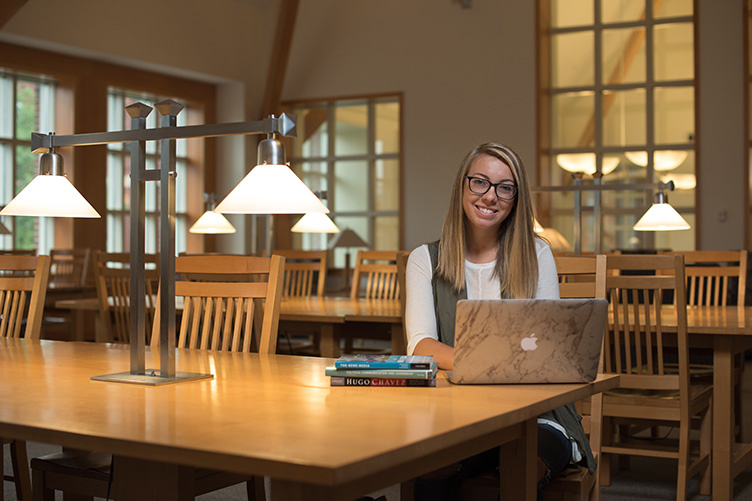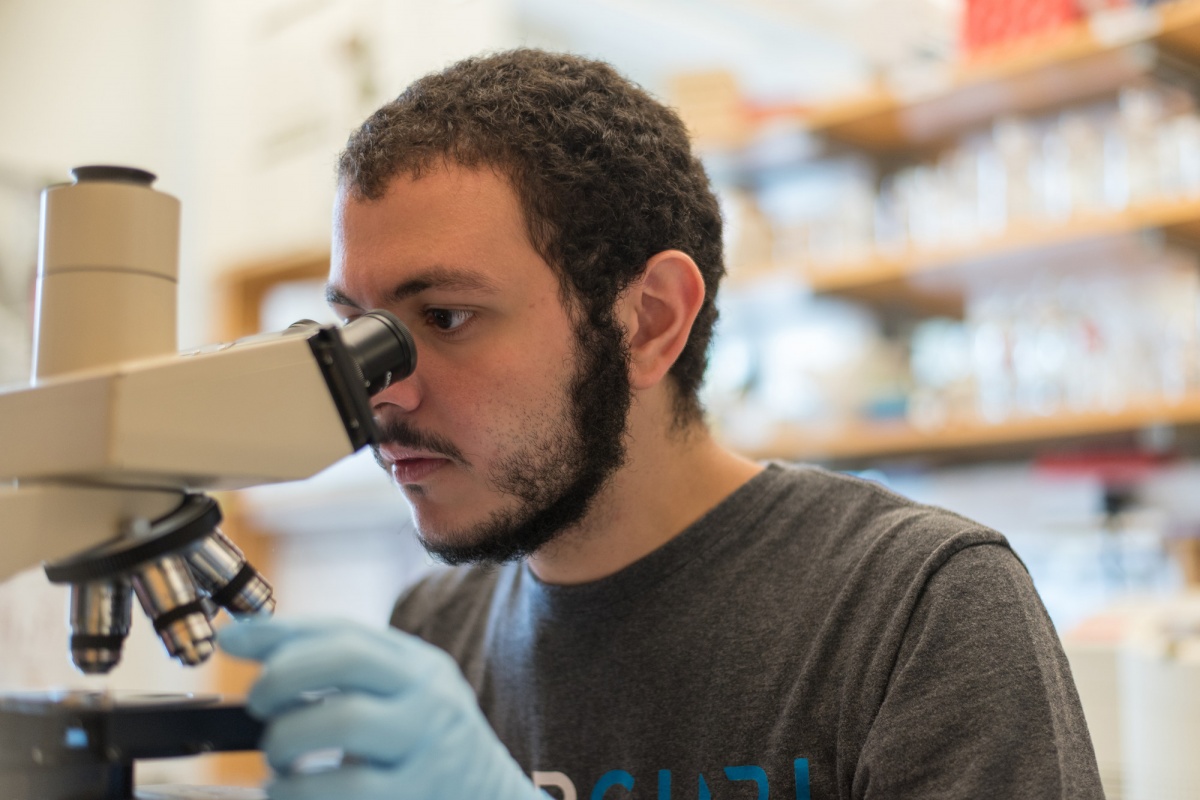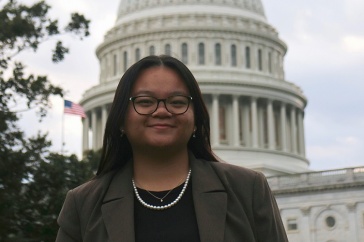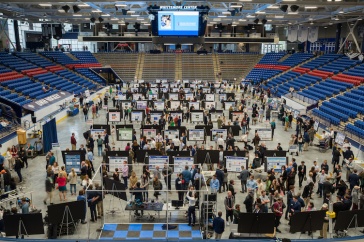
Charlotte Harris '18
What do world leaders President Trump, Hugo Chávez and Rafael Correa have in common regarding how they work with the press? This is a question senior Charlotte Harris investigates, thanks to a Summer Undergraduate Research Fellowship awarded by the Hamel Center for Undergraduate Research. The fellowship was funded by a Grand Challenges Research and Innovation Grant from the College of Liberal Arts (COLA).
Using historical research, contemporary media theory and political communication research, her study, “Populism and the Press: Investigating the Relationship Between the Government and the Media in Latin America,” looks at how valid it is to make a comparison between these Venezuelan and Ecuadorian populists and the current U.S. president to provide insight into the changing relationship between the United States presidency and the American press — and how that in turn affects our democracy.
The communication and Spanish double major says her interest in Latin American culture was spurred by a visit to the Dominican Republic during a previous J-Term. Prior to that, she spent a semester in Granada, Spain, where she honed her Spanish speaking skills.
“It is really exciting to be working on a research question that integrates my divergent areas of interest — media studies, politics and Latin American studies. It’s proof you don’t have to take a class in a certain subject to learn about it,” she says.
"Her passion for her project is genuine and infectious."
As part of COLA’s Grand Challenges for the Liberal Arts Initiative, Harris’ research ties into the college’s desire to tackle “grand challenges” through teaching, research and public engagement. COLA defines grand challenges as “urgent, widely shared problems that call for large-scale, long-term coordinated responses.” Grand challenges cross disciplinary boundaries, as does Harris’s research.
“I am a huge advocate of the liberal arts and the humanities,” Harris says. "With a liberal arts background you can work in these fields (business, STEM) and bring a different approach to solving issues that is both innovative and important.”
The fellowship, which came with a $3,500 stipend, allowed Harris to spend all last summer sifting through research, analyzing many source materials available in Spanish only. During that time, she designed her project, reviewed scholarship and conducted interviews. This semester, she finished writing her final research paper and concluded that while these populist leaders had traits in common, any valid comparison between them must also take into account their distinct cultural contexts and political ideologies. One similarity was that all tend to bypass traditional media to get their own messages out to the people. Whereas President Trump uses Twitter, Harris says Chávez would televise eight-hour long broadcasts on Saturdays. All three presidents are also similar in that they reject conventional presidential behavior and tend to denounce their opposition. Still, Harris is cautious to say that some shared tendencies among the three mean that democratic structures in the U.S. are susceptible to the same threat experienced by those in Venezuela and Ecuador. To assume so would oversimplify the nuanced and complex political contexts of each distinct country, as Harris explains in her article published in the 2018 edition of Inquiry.
Harris has incorporated this extensive body of research into her honors thesis and presented it on two panels at the 2018 UNH Undergraduate Research Conference in April.
Research in Your Future?

Dozens of UNH students receive SURF grants to conduct summer research each year, and you can, too.
Harris’s advisor, Michael Soha, a lecturer in the communication department, helped her shape her research question and directed her to scholars and resources related to Latin American politics. He lauds Harris for her ability to challenge herself and combine her ideas to come up with new questions that add value to Latin American research.
“Charlotte is driven by her own desire to complete a serious scholarly project, challenging herself and learning in the process. Her passion for her project is genuine and infectious, which has led to many long, informal meetings where we’ve talked through the details and challenges of research,“ Soha says. “Her project also has a personal appeal to me, as my mother immigrated to the U.S. from Guatemala, and I try to keep up with Latin American news and politics. For both of us, our shared interest in the complex relationship between Latin America and the U.S. helped drive our discussions and shaped her project.”
Soha adds that Harris’s work reaffirms the value of scholarship, both in spirit and in content. He credits her for seeking out Spanish-language and regional scholarship to avoid ethno-centric assumptions, and for her project’s aim to contextualize and complicate “overly-simplistic narratives about authoritarianism, populism and the relationship between political leaders and the press.”
Harris is now looking to begin a career in media advocacy in Washington, D.C., after she graduates in May. A UNH Presidential Scholar and an active member of the UNH community, Harris made the most of her undergraduate experience not only through participation in study-aboard opportunities but also on campus as a member of the MUB Board of Governors, an editorial board member and editor-in-chief for the communication undergraduate research journal Comm-entary and a social media assistant on the #UNHSocial team. She credits each of her campus experiences for helping her grow her confidence and “fearlessness.” She also credits Soha for sparking her passion for media and politics, and all of her professors for inspiring her to take on new challenges.
“They want to challenge you but also want you to succeed,” she says. “They take the time to get to know you as a student and a person.”
Interested in helping make research opportunities like this possible for current and future Wildcats? Learn more about giving to UNH.
-
Written By:
Krysten Godfrey Maddocks '96 | College of Liberal Arts | krysten.godfreymaddocks@unh.edu



















































